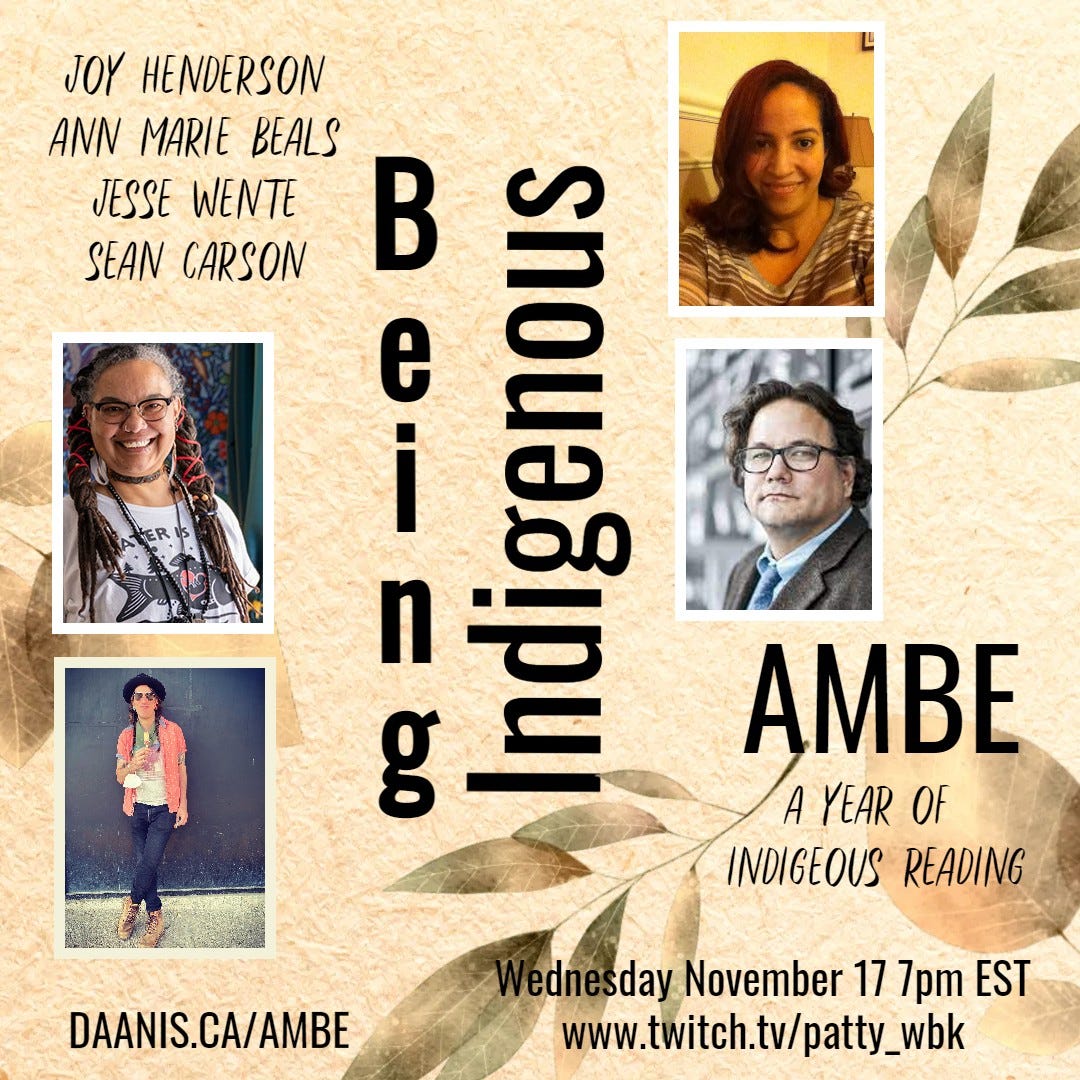In four years of podcasting I have had to take down interviews, not many, but a few. There was nothing wrong with the content but I had learned something that meant I no longer wanted to be associated with this person, I did not want to platform them, and these were easy decisions. I just took the episodes down. Withdrawing an invitation. That’s hard. So is deciding not to air an interview that I had been excited about. Both of these things happened in short succession.
A few months ago I saw a tweet by Kyle Mays about his new book, an Afro-Indigenous history of the US and it fit right in with so many things that I talk about both on Ambe and on Medicine for the Resistance. Over the past year I have worked at including Afro-Indigenous voices on both podcasts and so after a few conversations Kyle agreed to be on the November panel. I created a graphic and began promoting it and the emails and messages began within the hour. There were harms done and left unresolved. I reached out to Kyle and one of the women and made the difficult decision to withdraw the invitation. It was difficult, more difficult than perhaps it should have been.
I see posts all the time from people who say things like let me know if I’m friends with your abuser and I’ll cut them off immediately! But things are always complicated and we know that Black men are easily accused of violence, seen as predators before they do anything at all. Emmett Till whistled to manage a stutter and within 24 hours was accused and lynched. Medicine for the Resistance has an interview with Dr. Tamari Kitossa about his book, Appealling Because He is Appalling, that is waiting to be edited and released. This book details the eroticized racism of Black masculinity and so I know that accusations are easy and things are complicated.
But throughout the day my heart kept sinking, each message and email linking to a blog post with an apology that references broad social norms but not specific harms and I knew I had to pull the invitation. I hope that he makes things right, Black and Indigenous men are not disposable. Hurt people hurt people and racism does ugly things to all of us. Not that it excuses or justifies but there’s a difference between the violence of white supremacy and the violence that reacts to it in a thousand different ways. Context matters.
But I have a responsibility both to my readers/listeners and my panelists. How do we have a place to be brave when I include people who might be dangerous? When the women and 2 spirit people on the panel know that one of the panelists has a dark shadow, do we tiptoe around the violence in our communities because we don’t want to upset somebody who may feel accused by it? Because that is part of being Indigenous isn’t it, the violence in our communities. We need to be able to talk about it and there are no perfect victims but the perpetrators of harm need to make some kind of ammends before people can be brave around them.
So I found a new panelist, and thankyou to Joy for the recommendation. And I hope that you join us tomorrow evening. The conversations stream live on twitch.tv where you can access closed captioning, participate in the chat with comments or questions that our moderator will relay to the panel for response. You can also watch previous interviews and panels including that one with Tamari Kitossa that isn’t released in podcast format yet.

Being Indigenous
panels and people
